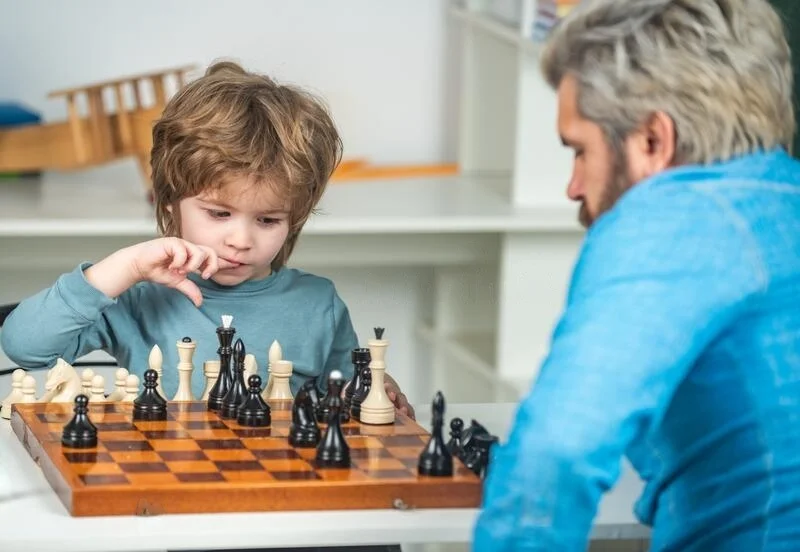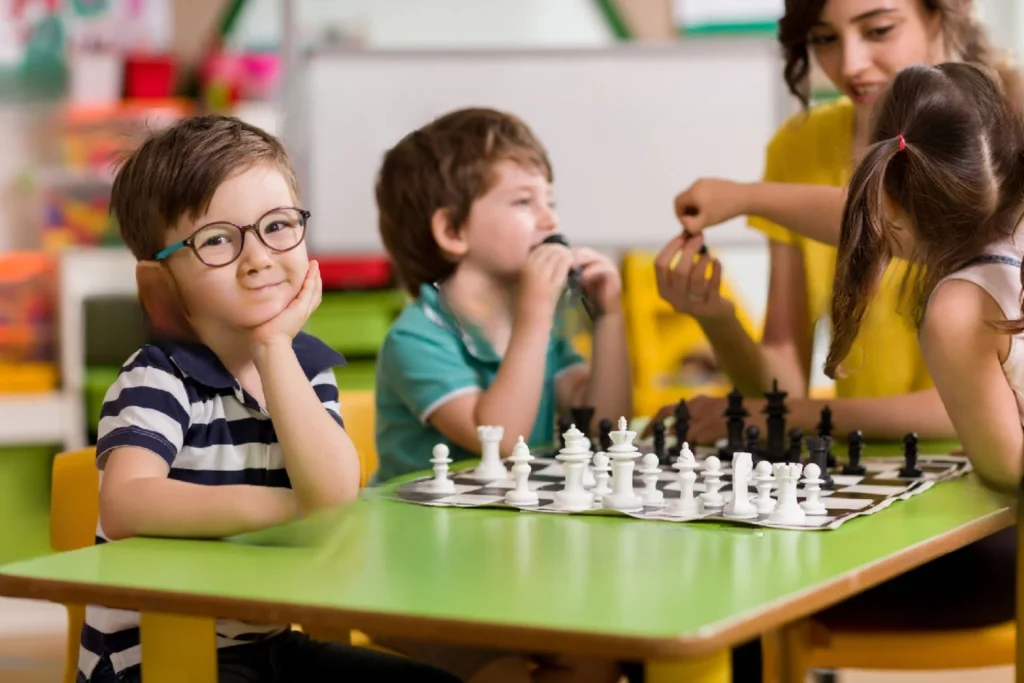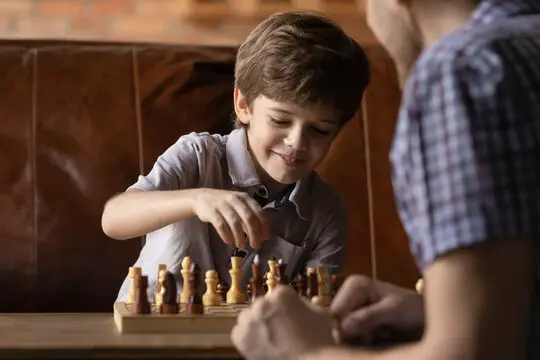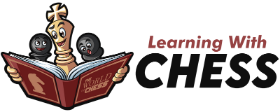How To Teach Chess To Children For Powerful Their Future
18/04/2023 - Actualizado: 21/06/2023
In today's article I am going to give some tips on how to teach chess to children, some things that will help us so that the child can understand all the content and begin to develop a genuine interest in chess.
(Don't forget to read our article on the benefits of chess for children)
These tips can be useful for parents who want to get their children into chess or at least introduce them to the game, as well as for instructors who are looking for new ways to teach chess or a new opinion.

All these tips are based on my experience as a teach chess coach for children.
How To Teach Chess To Children
Fun
What children look for most at this age (from 5 to 14 years old) is to have fun, so whatever we want the child to keep in mind, it is necessary to explain it as a dynamic game, if we explain it as if the child were an adolescent or an adult, the child will not show any interest in it.
Little by Little
We must give children space to discover chess little by little, space for their curiosity about chess, so that they will be eager to discover what comes next, and in chess there is always something new.
If They Are More than one, the Better
In my experience, it is much easier if there is a group of children, there is a healthy competition among them to see who can do and learn more, to be one of the best in the class, they are always looking for that competition, many times they will even want to compete against you 😄. This is more difficult when the child is alone as he/she needs a short-term goal to achieve.

Incentives
Whenever the child achieves a goal or the lesson ends, it is important that he or she gets an incentive, in my case I had a greeting system (of this style) where if the child achieved the goals, the greeting was better in the next class, it is not necessary to reward him with monetary incentives or some physical gift, in my case I resorted to the feeling of belonging or feeling special that not only children but also we adults long for.
Mix it with Everyday Life
Something that has worked for me is that when I explain the moves of the pieces, I always make sure that I give examples from everyday life, examples that may be simple, but that make the children remember chess when they see it in everyday life, for example, explaining the moves of the rook as if it were a train.
There are countless examples from children's everyday life, such as the games that are in fashion, or the child's own preferences, if he/she plays other sports (which is the most recommended), it all depends on how well we know the child.
Getting to Know the Child
One topic I mentioned in the previous point that is very important not to overlook is getting to know the child. There is no need to be too intrusive in trying to get to know the child better. And what better way to do that than to spend time with the child. As we spend time with the child, we can get a sense of the child's personality, the way he or she expresses himself or herself, and we can also get an idea of the child's personality through the things he or she tells us (many children will often tell us of their own volition their likes, dislikes, what other activities they like to do, even that they fell the day before 😄).
This is a great help in developing support materials or activities, and we can say without fear of being wrong that he or she will feel more comfortable and at ease if we, as teachers or parents, teach him or her about a topic that is familiar to the child.

If you, the person teaching the child, are a parent, a relative, or someone who has known the child for a while, this is a great advantage because you know what the child's preferences are.
Managing Frustration
Sometimes the child will feel frustrated or that he/she is not making any progress in chess and may even cry if he/she is very emotional, in these moments it is very important to let him/her know that it is normal to feel this way, not only about chess but also about life, many times we feel the same way about life itself.
In my case what has helped me is to open up to them a little and tell them that I started playing chess when I was ten years old, that I often cried when I lost, and that with time I began to win more than I lost. With effort and dedication, it is possible to improve, there will always be days when we do not see the right move or the right idea, just as there will be days when we feel enlightened and invincible.
It is very important to know how to deal with these moments of frustration, many children can abandon chess because of poorly managed frustration.
Passion for Chess
It is not necessary to be a master of the game to help children get started in this wonderful world, but what is important is that you like chess, children are very perceptive in this respect, they can immediately perceive when the teacher likes what he/she is doing and takes pleasure in teaching, and when he/she is doing it out of necessity or obligation.

For example, if a teacher is reluctant to explain the lesson or is more eager to finish the lesson than even his or her own students, this can have a negative effect on the learning process and may even cause the student to reject that particular lesson, which proves to be an obstacle to learning.
What other quality is important to teach chess?
⭐️ If you want to know more about other articles similar to How To Teach Chess To Children For Powerful Their Future you can visit our category Learn About Chess. We are waiting for you inside 👍


Leave a Reply